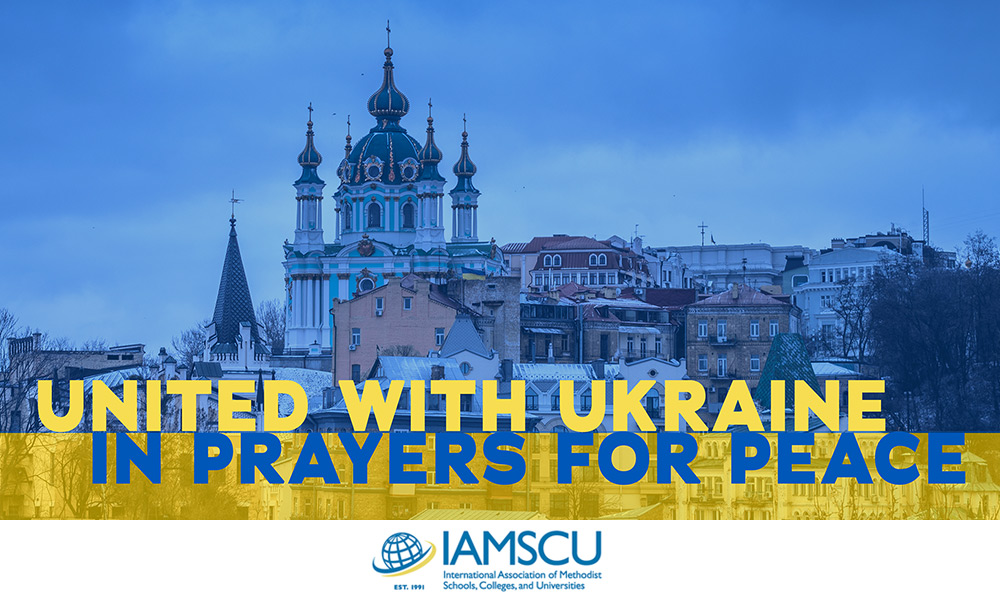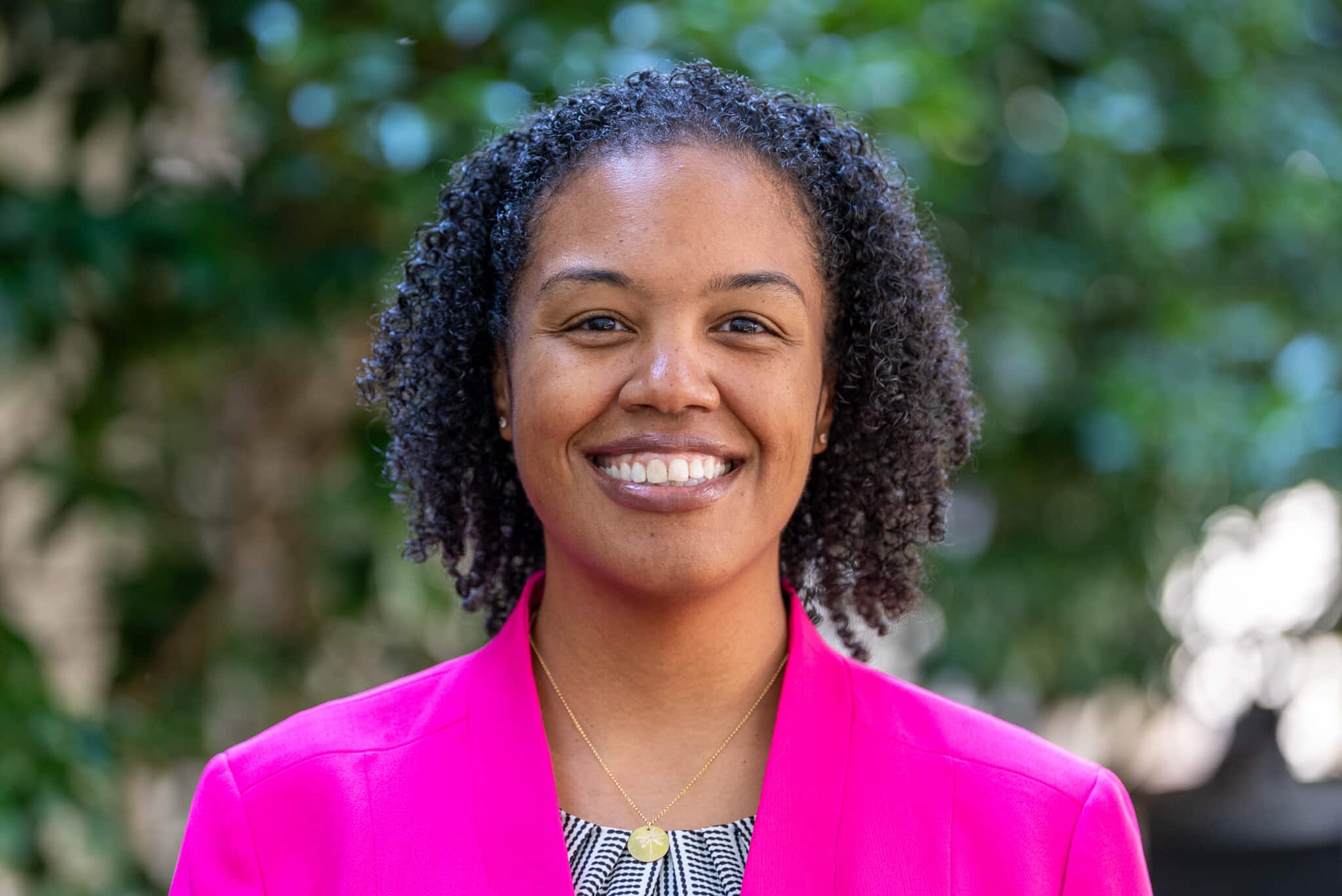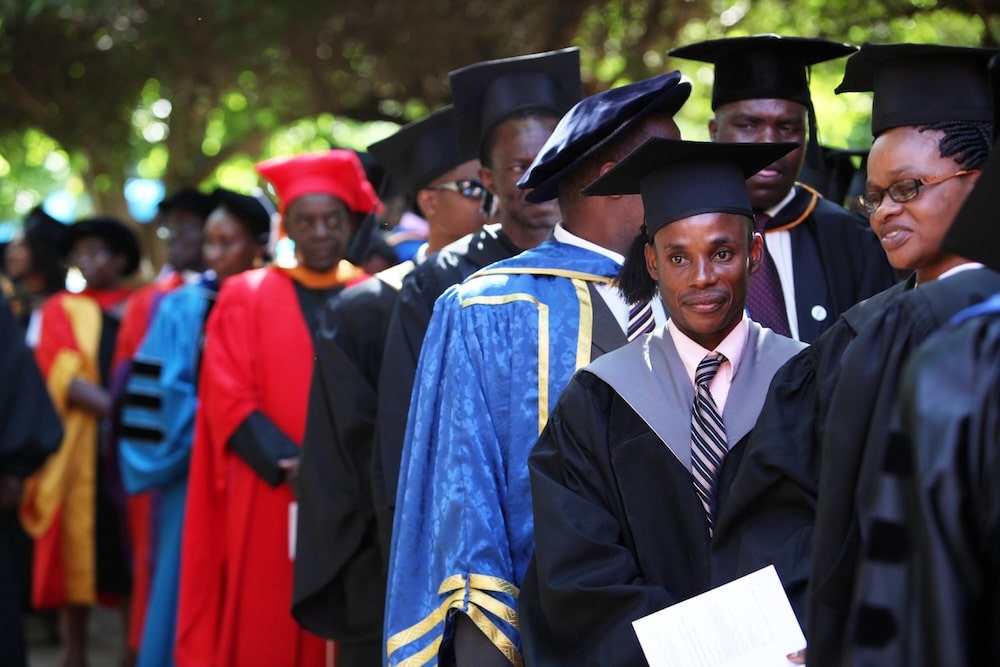An Open Letter to IAMSCU In Response to the Invasion of Ukraine

We stand with the people of Ukraine. The invasion of their sovereign land by order of the President of Russia is unjustifiable. It is in violation of any standard set among nations for how to live in just ways within the world community. This invasion has killed thousands, targeted innocent civilians, displaced families from their homes, and separated loved ones from each other. This invasion has forced peaceful people to make impossible choices causing moral injury. It has created propaganda to distort motivations and misrepresent the people of Ukraine’s rightful attempt to defend themselves.
IAMSCU is a global network of educational institutions founded in the Wesleyan tradition. Our schools teach with a global awareness. Each school is a resource to the others and supported to stand in its own stature while standing together in our common heritage. Together we are a global influence for justice and peace.
In times such as this, statements declaring the injustice against the people of Ukraine are essential. But declarations only begin our response to such injustice. Once published, they must not result in comfortable distance and a sense that we have accomplished something. As an interactive international body, IAMSCU has no luxury of distance to any global disruption. So, in preparation for this letter and in order to strengthen our collective identity with the people of Ukraine and the surrounding region, I chose to spend some time deepening my own knowledge of the specific relationship and history the Methodist people have in Ukraine. I choose to share this as a vital part of our response at this moment.
Methodism had an initially small presence in Eurasia at the end of the 19th century, as early as 1881. This is due to the work of Methodists in Sweden, Germany, and the United States. The Methodist ministry was well established in Uzhgorod (Ukraine) before 1923. With the formation of the USSR, its expansion after 1940, and the end of WWII in 1945, Methodism managed to survive unofficially in a few communities in Russia, Estonia, Latvia, Lithuania, western Ukraine, and other countries of the region. Even during times when religious freedom was suppressed, the Methodists were present offering education and social service. Methodism was re-established in the former USSR in 1989 through promotion of education. This eventually led to the formation of the United Methodist Seminary in Moscow in 1995. Similarly, the General Board of Higher Education partnered with the General Board of Global Ministries establishing a Student Ministry Program in L’viv offering pre-school, English Classes, and meetings with Orthodox, Catholic, and Protestant students interested in living the Christian faith.
This history serves as a reminder of the essence of Wesleyan connectionalism. When it is at its best, Methodism affirms human dignity as it offers compassion, stands with, and builds relationships across human difference.
I have been reflecting on connectionalism since the invasion began. It reminds me of the influence of the Trappist Monk, Thomas Merton. He lived a contemplative monastic life. Yet, he was fully engaged with the concerns of the world. His world awareness did not come from the newspapers and radio broadcasts of his day. Rather, it came from a rich array of correspondence he nurtured with friends around the world. He chose to see and understand the world through the eyes and experiences of these persons who lived it daily. I invite everyone to reach out to those you know who are in the binds of this horrible threat. And, I invite all of us to reach out to those persons who are currently living through human rights incursions taking place in other regions of the globe. May we also be mindful of those for whom this violence against Ukraine triggers a memory of a violation they or their ancestors have experienced.
As we reach out, may we take stock of the costs that must be shared globally. Let us be grateful to and take a lesson from the bordering nations who have welcomed Ukrainians who flee for their safety. Let us be mindful of the nations of the world who are connected by strong economic bonds and whose citizens must now share a portion of the burden from the sanctions that have been imposed on Russia. Let us be mindful of the citizens of Russia, who courageously and in full public view, risk personal freedom by protesting this invasion on their neighbors.
We are IAMSCU. Our institutions, and the academic freedom that they represent are a force for good in the world. May we continue to be stewards of that influence as we see it as a countering presence of the violence that is being perpetrated on the people of Ukraine. May our prayers be faithful, our love strong, and our work the formation and embodiment of justice.

Rev. Thomas V. Wolfe, PhD
IAMSCU President
Related Posts
May striving for love be our ethic. May the giving of love be our pursuit. May the witness of love be our joy.
The General Boards of Global Ministries (GBGM) and Higher Education and Ministry (GBHEM) announce the appointment of Dr. Dana Lyles as executive director of multiethnic ministries, effective Jan. 1, 2026.
Joy is that which compels us to celebrate life. We experience joy when, during the bleakest of circumstances, we move forward with the expectation that life continues to persist.






